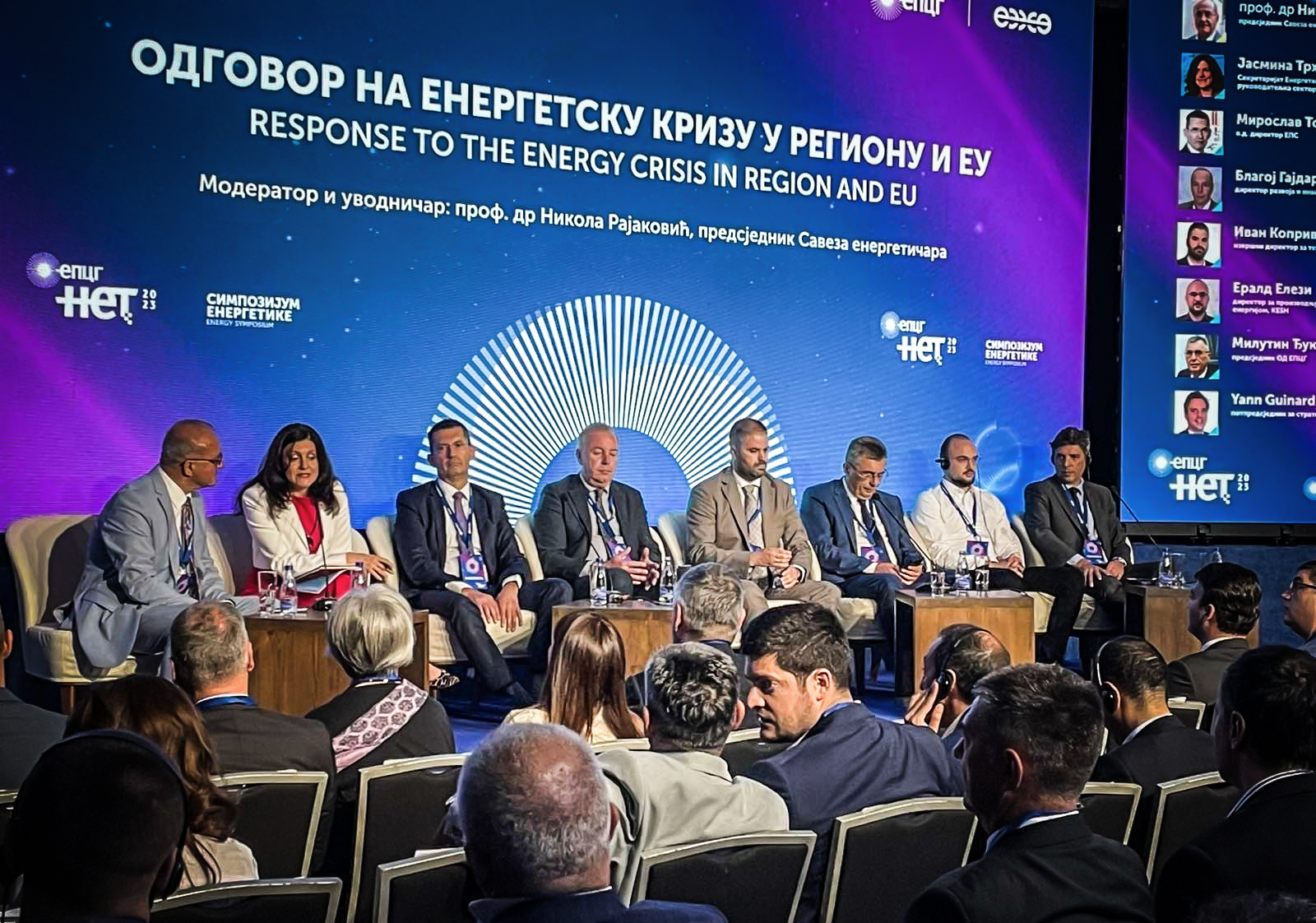
Power companies in the region are not against
introduction of carbon taxes, but the general requirement is that the money thus
collected stays in the country and is invested in the projects of the companies
which are under power transition, estimated the participants of EPCG NET Energy
Symposium.
A fair transition is the fair money allocation and the
region cannot invest in energy transition without financial support of EU. It
is important to go step by step, protect energy stability of the state and to move
forward together with the region – says Miroslav Tomašević, acting general
manager of Elektroprivreda Srbije.
He pointed out that EPS already has its Go Green Road aiming
at reducing CO2 emission by 28% until 2035 – It is a realistic plan for
EPS which will be realized through investments of 8.5 billion euros. We are
already on that path, we have an agreement for HPPs revitalization funding, we
cooperate with electric power industries of the Republic of Srpska and
Montenegro on the construction of new hydro capacities, we are also working on
wind and solar power plants – says Mr. Tomašević.
- We had a difficult period at the end of 2021 and
beginning of 2022, it is much easier now, and comparing the first quarter of
the last year with a minus of 250 million euros with the first quarter of this
year with the profit of over 250 million euros, it is clear how important the
result we have achieved is. Mr. Tomašević says that engagement of skilled
people, mild winter and good hydrology contributed to such result. EPS still
depends on coal import to a lesser extent, but that will change after the
construction of “Field E”.
– The most important thing for us is to have basic
energy, which enables system management and balancing – says Mr. Tomašević. .
It was said that Montenegro already has internal
carbon tax and that the Power Utility of the Republic of Srpska is moving in
the same direction cooperating with Montenegro on the model implementation.
Power sector is facing serious challenges, and the
initiated decarbonisation process passed a milestone point in the region, said
prof. Nikola Rajaković, PhD, president of the Association of Energy Sector
Specialists at opening of the symposium. – We have the initial results, which
were the hardest to achieve. The region has great chances, since it has natural
potentials – adding hydro potential and battery technology to sun and wind
gives excellent technological basis. The issue of implementing the fair energy
transition is also important – says Mr. Rajaković.
Milutin Đukanović, Chairman of the Board of Directors
of Elektroprivreda Crne Gore pointed out that the energy crisis is a great
chance for Montenegro who forced all social stakeholders to take a more serious
approach towards energy. – We have a big job ahead of us, since EPCG can be the
driving force behind the country's economic growth. It is up to us to make
Montenegro an energy independent and stable country. If we succeed in this, we
have the potential to also develop other activities, such as tourism – says
Đukanović.
EPCG NET Energy Symposium is organized by Elektroprivreda
Crne Gore in cooperation with the Association of Energy Sector Specialists. It took
place on 2nd and 3rd June and it hosted over 250 experts
in energy field.
